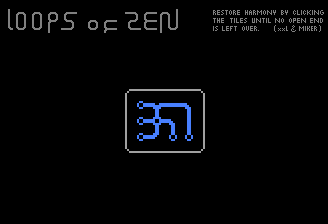

It builds a forum to share information and reverse engineering experience built around the biggest online and collaborative knowledge base about software packers. The project also goes beyond pure tool development. TitanMist is the nicely packaged and open source catch all tool that will become your first line of defense. Built on top of TitanEngine, it provides automation and manages all known and good PEID signatures, unpacking scripts and other tools in one unified tool. Every year multiple tools and projects are released and never maintained. Introduction to TitanMist Security is notoriously disunited. TitanEngine SDK contains: Integrated x86/圆4 debugger Integrated x86/圆4 disassembler Integrated memory dumper Integrated import tracer & fixer Integrated relocation fixer Integrated file realigner Functions to work with TLS, Resources, Exports,… Engine is open source making it open to modifications that will only ease its integration into existing solutions and would enable creation of new ones suiting different project needs. As such, it can be used to create all known types of unpackers. Support for both x86 and 圆4 systems make this framework the only framework supporting work with PE32+ files. TitanEngine can be used to make new tools that work with PE files. It is suitable for more than just file unpacking. With its 400 functions, every reverser tool created to this date has been covered through its fabric. TitanEngine can be described as Swiss army knife for reversers.
APLIB DECOMPRESSOR CODE
We will also see into methods of making generic code to support large number of formats without knowing the format specifics.

That is why we will discuss both static and dynamic unpackers.


Yet static unpacking is still important due to the fact that it will always be the most secure, and in some cases, fastest available method. In this fashion problems of making static unpackers have been solved. When that point is reached file gets dumped to disk and fixed so it resembles the original to as great of a degree as possible. This creates an execution timeline which parries the protection execution and gathers information from it while guided to the point from where the protection passes control to the original software code. With the guided execution and a set of callbacks these separate modules complement themselves in a manner compatible with the way any reverse engineer would use his tools of choice to unpack the file. Basic set of libraries, which will later become the framework, had the functionality of the four most common tools used in the unpacking process: debugger, dumper, importer and realigner.
APLIB DECOMPRESSOR MANUAL
We have designed TitanEngine in such fashion that writing unpackers would mimic analyst’s manual unpacking process. We are limited to writing our own code for every scenario in the field. Yet when it comes to writing unpackers this process hasn’t evolved much. Some of those tools are still in use today since they were written to solve a specific problem, or at least a part of it. Hence we need to ask ourselves, can we keep up with the tools that we have? Protections have evolved over the last few years, but so have the reverser’s tools. Number of such techniques increases every year. Software Protection as an industry has come a long way from simple encryption that protects executable and data parts to current highly sophisticated protections that are packed with tricks aiming at slow down in the reversing process. During the last decade a vast number of such shell modifiers have appeared. Introduction to TitanEngine One of the greatest challenges of modern reverse engineering is taking apart and analyzing software protections. TitanMist: Your First Step to Reversing Nirvana| TitanMist Ĭontents Introduction to TitanEngine.


 0 kommentar(er)
0 kommentar(er)
